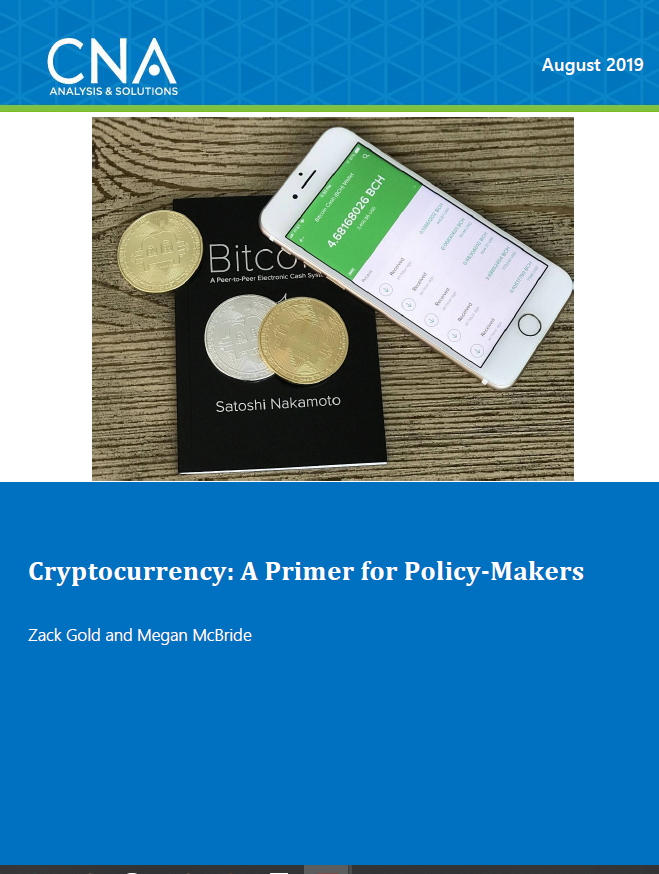In 2017, the value of one Bitcoin skyrocketed to more than $20,000. Media coverage increased, and even people who did not join the investment frenzy became aware of so-called “cryptocurrencies.” Despite this familiarity, few actually understand cryptocurrencies and the implications they may have on US interests, from global finance to national security to good governance.
Cryptocurrencies are strictly digital currencies (and not merely the digital exchange of conventional currencies such as US dollars), are typically overseen by a decentralized peer-topeer community, and are secured through cryptography. Cryptocurrency supporters highlight the potential for cryptocurrencies to improve buyer-seller transactions. Meanwhile, news reports over the past decade have raised red flags about the use of this technology by criminals, terrorists, and rogue states.
CNA initiated this study to explore the implications of cryptocurrencies for special operations forces (SOF), the broader US Department of Defense (DOD), and other US government agencies. In the process of considering national security implications, we found a gap in knowledge about cryptocurrencies and the cryptocurrency ecosystem among the policy-making community.This primer is an effort to address that gap and advance the understanding of cryptocurrencies and consideration of their national security implications.
Cryptocurrencies differ from most conventional currencies in five significant ways:
- Cryptocurrencies are not controlled or regulated by banks or governments.
- Cryptocurrencies rely on a decentralized system (known as the “blockchain”).
- Cryptocurrency exchange rates can be extremely volatile.
- Cryptocurrencies typically have longer transaction times.
- Cryptocurrency transactions are pseudonymous or anonymous.
Distribution: Approved for public release. Unlimited distribution.
Details
- Pages: 63
- Document Number: CRM-2019-U-020185-Final
- Publication Date: 8/1/2019
